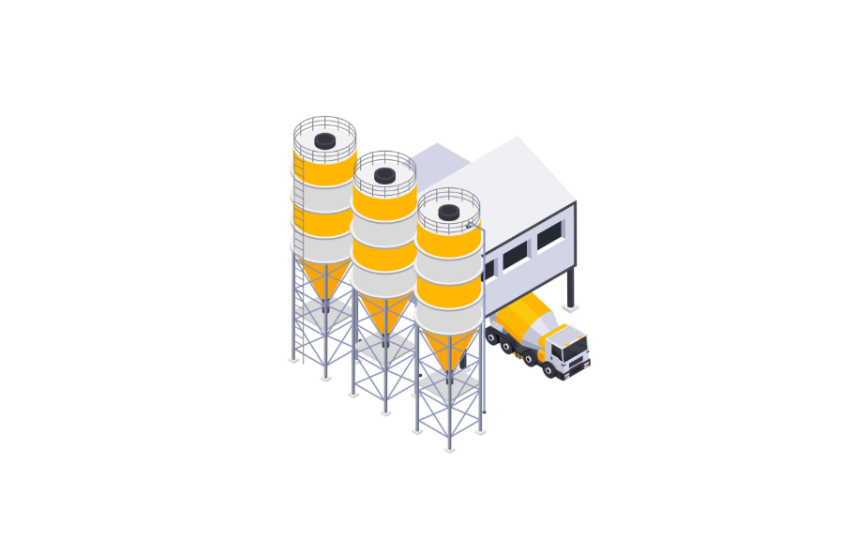The construction industry is the backbone of the UK’s infrastructure development—from urban housing and commercial complexes to public roads and energy projects. Yet, behind every crane, excavator, or dumper, there’s one critical element powering progress: fuel. In an era where efficiency, cost-effectiveness, and sustainability are paramount, construction fuel delivery services have become indispensable to UK-based construction operations.
In this article, we delve into why construction fuel delivery services are critical across the UK, and how they are shaping the future of the sector by improving logistics, productivity, environmental compliance, and cost control.
1. Ensures Continuous Operations Without Downtime
Downtime on a construction site is not just inconvenient—it’s expensive. Each minute lost due to an idle machine waiting for refuelling can cost a project thousands of pounds. Fuel delivery services eliminate this risk by providing on-site refuelling directly to machinery, equipment, and storage tanks.
Whether it’s red diesel, white diesel, or HVO (Hydrotreated Vegetable Oil), scheduled fuel deliveries keep the project on track without unplanned interruptions. This ensures projects meet tight deadlines and budgets—a must in today’s competitive construction sector.
2. Improves On-Site Efficiency and Workforce Productivity
Construction companies in the UK are increasingly turning to mobile fuel delivery to streamline operations. Rather than assigning personnel to drive to fuel stations—often off-site and time-consuming—fuel is brought to the point of use.
This model of service delivery not only saves time but boosts overall workforce productivity. Site managers can focus on core construction activities instead of managing fuel logistics, while operators can avoid waiting in queues or losing time due to mismanaged refuelling schedules.
3. Reduces Environmental Impact and Promotes Sustainability
With the UK government pushing towards net-zero carbon emissions by 2050, construction companies are under mounting pressure to reduce their environmental footprint. Reliable fuel delivery services help support this goal by offering access to cleaner fuel alternatives like HVO.
Additionally, by reducing the number of trips to external fuel stations, delivery services minimise vehicle emissions and overall site traffic. Many fuel suppliers in the UK now provide fuel with certified lower emissions, helping contractors meet sustainability benchmarks and corporate social responsibility goals.
4. Enhances Safety and Regulatory Compliance
Handling and transporting fuel on-site comes with risks—from fire hazards to environmental spills. Construction fuel delivery services in the UK are strictly regulated, with suppliers adhering to health, safety, and environmental standards.
These services ensure that fuel is stored, handled, and dispensed in a compliant and secure manner. Professional delivery companies also help contractors remain compliant with regulations surrounding red diesel usage, HVO adoption, and fuel storage practices, reducing the risk of costly fines or work stoppages.
5. Offers Real-Time Monitoring and Inventory Control
Modern fuel delivery services are equipped with telematics and digital inventory systems that allow site managers to track fuel usage in real time. This kind of visibility helps reduce waste, detect leaks, and improve budgeting accuracy.
Automated alerts and usage reports ensure that projects don’t run out of fuel unexpectedly, while digital dashboards make it easier to forecast future needs based on actual consumption data.
6. Supports Remote and Large-Scale Construction Projects
In rural or hard-to-reach areas of the UK—such as moorlands, coastlines, or remote road-building sites—access to local fuel stations is limited or nonexistent. Fuel delivery services bridge this gap by bringing high-grade fuel directly to remote job sites, regardless of location.
This logistical advantage is vital for infrastructure projects across the Highlands, national parks, and coastal developments, where transportation costs and delays could otherwise derail progress.
7. Helps with Cost Management and Bulk Savings
Fuel is a significant cost component in any construction budget. On-site delivery allows construction firms to buy in bulk at competitive rates, often at lower prices than retail forecourts. Many UK fuel suppliers also offer fixed-rate contracts or flexible payment terms, helping businesses manage cash flow.
Bulk deliveries also reduce the need for repeated small purchases, cutting down on administrative costs and time spent on fuel-related procurement tasks.
8. Customised Services for Diverse Construction Needs
From daily scheduled deliveries to emergency top-ups, today’s fuel delivery services are flexible and responsive. They cater to diverse needs, including:
-
Powering temporary generators
-
Fueling heavy-duty earthmovers
-
Topping up storage tanks for long-term operations
-
Supplying sustainable fuels for environmentally sensitive projects
Whether you’re a local contractor or a national construction firm, delivery schedules can be adapted to your exact requirements, ensuring that fuel supply aligns seamlessly with your workflow.
9. Strengthens Business Continuity Planning
The COVID-19 pandemic, Brexit, and global fuel price volatility have underscored the importance of reliable supply chains. Partnering with a trusted UK-based fuel delivery company ensures continuity even during disruptions.
Many suppliers maintain emergency delivery capabilities, so if a project faces unexpected demands or fuel shortages, services can be deployed rapidly to keep operations moving.
Conclusion
Construction fuel delivery services are no longer a luxury—they are a critical component of the UK construction ecosystem. They bring fuel to where it’s needed, when it’s needed, while saving money, time, and emissions. As the construction sector continues to evolve with stricter environmental regulations and growing demand for operational efficiency, investing in a trusted fuel delivery partner is not just smart—it’s essential.
For construction companies across the UK, securing a reliable and efficient fuel delivery service means not just meeting deadlines, but also achieving long-term sustainability and success in an increasingly competitive market.




